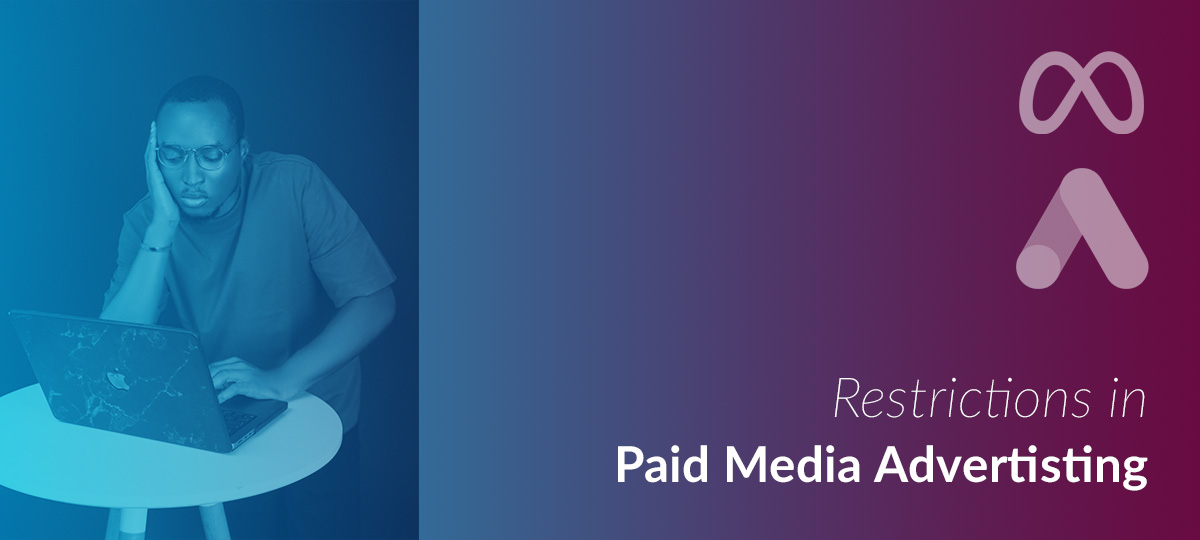
It’s always important to consider potential restrictions and regulations before deploying a paid advertising campaign. It is clear that restrictions will always impact some sectors such as pharmaceuticals, alcohol or financial services. However, even if you think that your particular industry or sector may not be impacted by advertising restrictions, both Google and internal policies could have the potential to impact your advertising’s approval.

Before running a Google Ads campaign, our advice would be to give Google’s advertising policies section a read, no matter your industry. It’s important to note that policies can significantly alter by location targeted, and some violations can easily result in a permanent account suspension.
The same applies before running any campaign on Meta. Running ads on Facebook or Instagram have additional restrictions to consider. For example, you are unable to infer any personal attributes about the user such as age, gender or medical conditions in your advertising. If this is a concern and you want to find out more it’s helpful to view further details about Meta’s advertising restrictions here.
If you’re running ads in what may be considered a ‘safe’ industry, for example a D2C apparel ecommerce site, then it’s vital to be aware that there still needs to be careful consideration of restrictions when running advertising. With Google Shopping and Performance Max campaigns, despite advances in Google’s AI, their review tools can get tripped up easily. We have frequently seen instances of totally innocuous products being flagged as weaponry, tobacco or other heavily restricted categories – which then require a manual review before being able to advertise and can take several days to remedy.
It’s always valuable to have a read through product titles and descriptions and see if there’s anything that could potentially flag them for restriction. For example, maybe a specific item colour is described as ‘tobacco’ or ‘gun metal’ which could be an issue. Doing this won’t prevent all errors, so it’s important to ensure you’re frequently checking disapprovals in your Merchant Centre account and that your product feeds are optimised.
On Google Ads, using trademarked terms in ad copy can limit them or cause disapprovals. If you’re launching a product in collaboration, it’s vital your partner has cleared their trademarks for you to use by filling in this third party authorisation form. This can be quite a time consuming process to complete. Even if not running a collaboration, your ad text could accidentally use a trademarked term, which would then require editing.
Aside from trademark restrictions, it’s good to note that copy sign-off can be a complex process which needs to be planned for and will potentially take longer than you anticipate. It can involve many departments or have to go through multiple companies in different locations. Ensuring brand restrictions and guidelines are met can take months, especially if requiring review by legal departments.
Our recommendation is to start building a draft of your paid media campaign well in advance of a potential launch. Ideally do this four weeks for a new account, and only after carefully reading policy documents, no matter your sector. If working with partners in other companies, ensure you have a contact who can assist you in providing access and clearance to prevent delays.
If you need support with your paid media campaigns contact our expert team to discuss your challenges and any concerns about restrictions, we would love to help.
Varn is an expert specialist SEO search marketing agency. Technical SEO * AI & Innovation; Data Analytics * Offpage SEO
You need to load content from reCAPTCHA to submit the form. Please note that doing so will share data with third-party providers.
More InformationNotifications